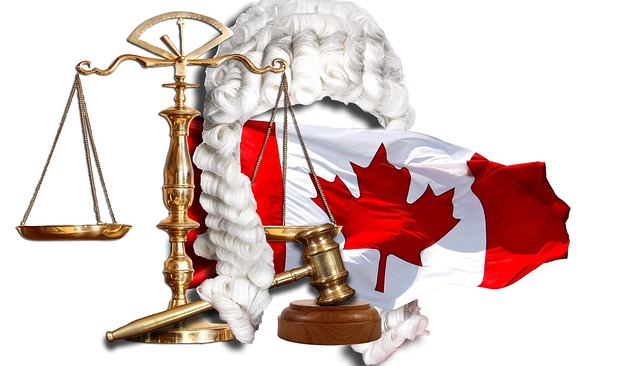Securities class actions are a powerful legal tool against fraud and misconduct in complex cases like antitrust violations within pharmaceutical industry mergers. These lawsuits consolidate individual shareholder claims, offering an efficient path to justice and compensation. Skilled attorneys navigate these intricate battles, ensuring clients' rights are protected. Antitrust concerns arise frequently in M&A deals due to unique industry dynamics, with regulatory bodies closely examining potential impacts on competition and access to medications. Case studies on antitrust issues in pharmaceutical industry mergers provide critical insights into the effectiveness of securities class actions and influence perceptions of regulatory bodies, potentially shaping future policies.
Securities class actions, a powerful legal tool, play a pivotal role in protecting investors from fraudulent or negligent conduct. This article explores the intricate world of securities litigation, focusing on antitrust concerns within the pharmaceutical industry. We delve into the legal framework governing class actions and examine how these lawsuits address potential anti-competitive practices during mergers. Through case studies, we uncover real-world implications for regulatory bodies, shedding light on the importance of vigilant oversight in preserving fair market competition.
- Understanding Securities Class Actions: A Legal Framework
- Antitrust Concerns in Pharmaceutical Industry Mergers
- Case Studies and Implications for Regulatory Action
Understanding Securities Class Actions: A Legal Framework

Securities class actions are a legal mechanism designed to hold corporations and individuals accountable for fraud or misconduct in the securities market. This framework is particularly crucial when addressing complex issues like antitrust violations in pharmaceutical industry mergers, where massive financial interests collide with public trust. In such cases, class action lawsuits serve as a check against corporate dominance and ensure that shareholders’ rights are protected.
These legal proceedings allow for the consolidation of multiple shareholder claims into one suit, enabling efficient resolution and potential recovery of losses. The process involves careful navigation through intricate regulations and legal precedents, with the goal of achieving either a settlement or a complete dismissal of all charges against the defendants. For his clients facing securities-related issues, a skilled general criminal defense attorney can provide invaluable guidance, ensuring their rights are preserved throughout the litigation.
Antitrust Concerns in Pharmaceutical Industry Mergers

In the competitive pharmaceutical industry, mergers and acquisitions (M&A) are common strategies for companies seeking to expand their market share and product portfolios. However, these deals often raise significant antitrust concerns due to the industry’s unique dynamics. Antitrust issues in Pharmaceutical Industry Mergers involve meticulous evaluations of potential effects on competition, pricing structures, and access to essential medications. Regulatory bodies, such as the Federal Trade Commission (FTC) and the Department of Justice (DOJ), scrutinize these transactions to prevent mergers that could result in less competition or higher prices for consumers.
One primary focus is ensuring that merged entities do not gain monopolistic power, which might lead to reduced innovation and higher costs. For his clients involved in such deals, securing winning challenging defense verdicts requires robust legal strategies that demonstrate the positive impacts of the merger on the market, including potential cost savings and improved drug accessibility. General criminal defense practices are less relevant here; instead, the expertise lies in antitrust law and its intricate application to pharmaceutical M&A cases.
Case Studies and Implications for Regulatory Action

Case studies play a pivotal role in understanding the implications of securities class actions, particularly when it comes to antitrust issues in pharmaceutical industry mergers. These in-depth analyses provide valuable insights into how legal strategies and regulatory responses can shape the landscape of such complex transactions. For instance, examining high-profile cases where antitrust concerns were raised during pharmaceutical mergers offers crucial lessons for regulators and legal professionals alike.
By studying these scenarios, one can identify patterns and trends that highlight the need for stringent oversight in the pharmaceutical sector. Such investigations often reveal anti-competitive practices, like price fixing or market division, which have significant repercussions on consumers and the broader general criminal defense landscape. Moreover, understanding the motivations and tactics employed by plaintiffs’ attorneys in these class actions can influence how philanthropic and political communities perceive and engage with regulatory bodies, ultimately shaping future policy directions.
Securities class actions play a pivotal role in ensuring corporate accountability, particularly in the pharmaceutical industry. By examining cases like antitrust concerns over mergers, we uncover critical legal frameworks and implications for regulatory action. These studies highlight the need for meticulous scrutiny to prevent potential market distortions and protect consumers. Addressing antitrust issues in pharmaceutical industry mergers is essential to maintaining fair competition and fostering innovation, ultimately benefiting patients and investors alike.






